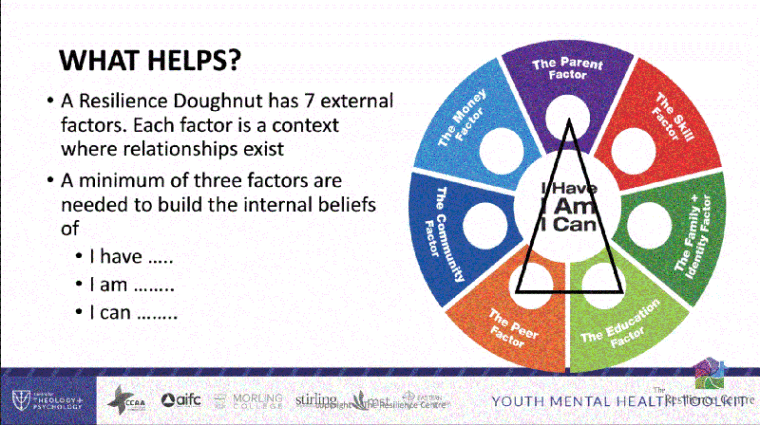
The wellbeing and mental health of our youth is a critical issue in Australia today. Increasing numbers of children and adolescents are struggling to navigate a world which puts constant demands on them.
These issues have increased with the current Covid lockdowns, with rising numbers of youth accessing helplines and presenting with symptoms ranging from anxiety and depression to self-harm and suicidal thoughts.
Mental health helps
In an innovative attempt to address this trend the Centre for Theology & Psychology (CTP), part of the Melbourne School of Theology (MST), conducted a free webinar exploring the topic.
This webinar series, marking World Mental Health Day on 10 October 2021, was for practitioners who interact with children and adolescents. The Webinar brought together Christian speakers from a host of partnering Bible Colleges (MST, Eastern, Morling, & Stirling) and organisations (Australian Institute of Family Counselling & Christian Counsellors Association of Australia).
Toolkit topics
Gathering these experts on one webinar was aimed to create a youth mental toolkit to help practitioners working in the field.
Lyn Worsley set the challenge to consider “What if” parents, during Covid, focused on connecting with their children? What if Covid kids showed justice and mercy, walked humbly and compassionately led the new world?
Worsley explored ways to increase resilience in youth such as being pro-active with these strategies rather than passive and reactive to the negatives. She said the current Covid pandemic could provide a powerful way our next generation could grow resilience and lead.
It highlighted the need to approach challenges from a position of opportunity rather than a position of deficit. A practical resilience tip is seen in the attached photo of our Resilience Doughnut. For positive change to occur at least three of the seven relationship factors must be met.
For example, if you are facing a challenge, you are more likely to grow through that challenge if you have a strong connection with your parents (factor one), with peers (factor two), and connected with your school (three factors).
Some of the other topics explored included Dr. Julie Morsillo outlining a program creating hope for youth. For example, she explained a “circle of security” that offers parents strategies to support and build trusting relationships.
The idea
The idea is that by providing comfort and supporting courage in children you help nurture strong stages of psychosocial development. Parents are providing a secure base for child development and a safe haven for growth.
Max Schneider explained support strategies practitioners could use for youth. For example, teaching youth a theology of suffering. Christian youth need a boarder perspective of suffering to include the way God uses suffering to bring about greater things.
This helps present a light for youth in the depth of their own darkness as they see examples of times, such as Jesus’ death and resurrection, God has used suffering to bring about great things.
A valuable highlight from Dr. Katherine Thompson was her research and workshops developed around the area of Christian prayer, meditation, and Christian mindfulness.
Throughout each session the speakers provided practical tips for practitioners to handle not only youth mental health strategies but also how these apply to the current Covid mental health strategies.
It was encouraging to hear Worsley point to some research suggesting that many youths will not only bounce back from the current covid mental health challenges but actually grow in their resilience because of the pandemic.
Future resources available soon from the CTP include a Christian leadership program and Christian mindfulness. Other resources and further study are available at the partnering Bible Colleges and organizations.

Jeremy Dover is a former sports scientist and Pastor
Jeremy Dover's previous articles may be viewed at https://www.pressserviceinternational.org/jeremy-dover1.html
And https://www.pressserviceinternational.org/jeremy-dover.html